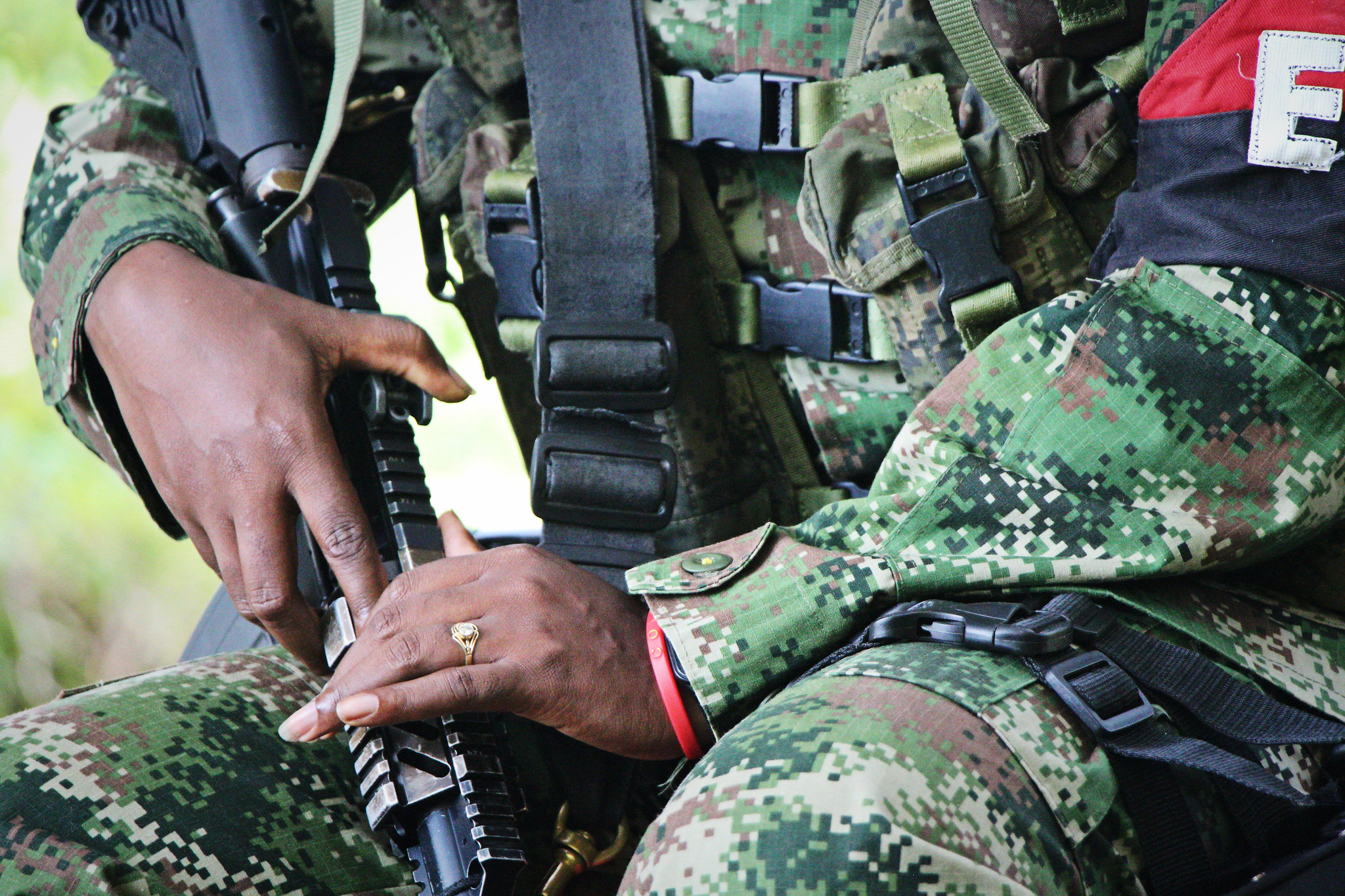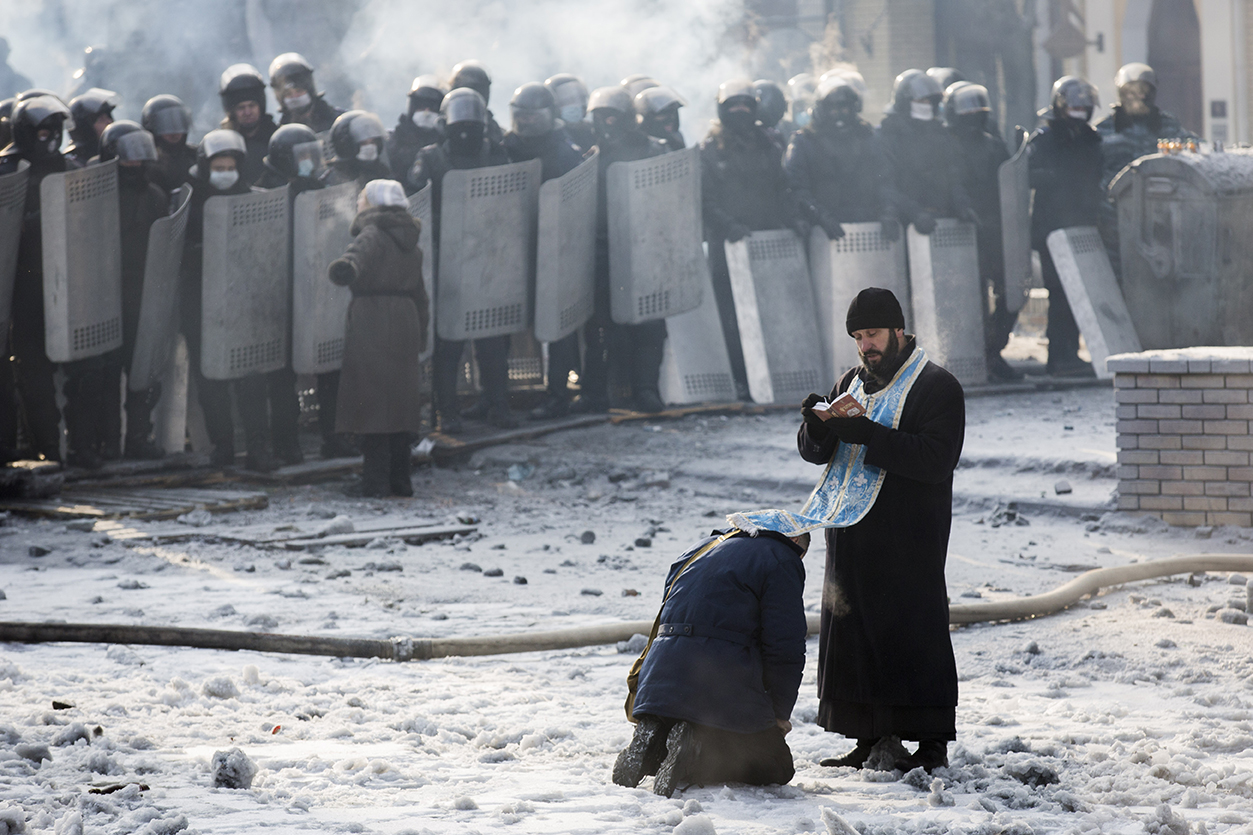The risk of chemical weapons use by the Assad regime appears to be increasing. The New York Times recently reported that the regime had begun to move its chemical weapons stockpiles, signs bolstered by a Danger Room report that the Syrian government was combining limited amounts of the precursor chemicals to sarin gas. These reports were echoed again last Friday by suggestions that the regime had begun to load the deadly gas into aerial bombs, but not move the weapons onto aircraft.
Prompted by these reports, President Obama repeated his warning to Assad not to use chemical weapons, warning their use would result in “consequences”. Among other officials, NATO Secretary-General Anders Fogh Rasmussen seconded the warning, stating that “if anybody resorts to these terrible weapons I would expect an immediate reaction from the international community.” The United States has previously stated that the use of chemical weapons, or belief that their use is immanent, is a “red line” that would prompt international action against the Assad regime — though the administration has reportedly walked back on its previous assertion that moving chemical arms crosses this line. For its own part, the Assad government has stated that it would use chemical weapons against an international intervention force, but not its own people.
It is unclear whether Assad is actually preparing to use chemical weapons. Syrian opposition figures reportedly doubt that chemical weapons use is imminent, the reliability of reports that the regime is readying its arsenal remain unclear, and it is possible that Assad hopes to use this implied threat to bargain for asylum. A Syrian government spokesman termed chemical weapons use “suicidal”, and many analysts appear confident that international threats are sufficient deterrence to prevent the regime from using its chemical arms. However, observers should not be sure that Assad has no incentive to use these weapons.
As Barbara F. Walter has argued, chemical weapons are imprecise instruments of destruction; subject to unpredictable dispersal by wind and other atmospheric conditions, they are best deployed against massed troops, or as an indiscriminate terror weapon. Given these weapons’ limits in the chaotic urban combat characteristic of Syria’s civil war, Assad is unlikely to deploy them as a tactical weapon. It is more likely that if Assad elects to use chemical weapons, he will do so as a coercive instrument of terror. Walter again noted this logic last summer, in the context of regime massacres of children:
“The game Assad is playing is a game of intimidation. Assad wins if he can convince Syrian citizens – especially those whose sympathies lie with the rebels – that he is able to kill any individual who does not fully support him.”
The problem here is that the regime would be unable to even remotely pretend that all of those killed by urban chemical weapons use are opposition sympathizers. It is certainly true that massacring children is not a precise targeting of rebels (assuming that these massacres are actually ordered by the regime, and not undertaken on the initiative of local commanders). But they do send the implicit message that those who do not fully support the regime will have their loved ones horribly killed, and rebel forces cannot protect them. By discouraging support for the opposition, massacres function as strategic coercion.
Indiscriminate chemical weapons cannot send this precise of a signal, because the nature of the Syrian conflict means that there are few geographic areas populated entirely by regime-perceived rebel sympathizers — unlike Saddam Hussein’s chemical attacks on Iraqi Kurds. The Assad government has razed Damascus homes and indiscriminately shelled areas of Aleppo and Homs as collective punishment, but chemical weapons really cannot be reliably targeted at the urban district-level. This has apparently not stopped the regime from considering their use, though — NPR reports that Iranian Quds Force officers have encouraged the regime to use chemical weapons in Homs.
Another possibility is that prospective regime chemical weapons use is a form of hostage taking. While chemical weapons are not suited to targeted collective punishment or tactical use against dispersed rebels in urban environments, they do give the regime the ability to kill many more people than the rebels — attacking a city with chemical weapons would be truly horrific. Given that the rebels value the lives of most Syrians, especially their coethnics, the regime can use its own citizens as hostages to compel rebels to stop fighting. This threat is one sided: because the rebels lack chemical arms, they can’t take hostages of their own. Of course, unlike a personal hostage situation, the regime can actually use chemical weapons to demonstrate resolve without actually “killing” the hostage. The regime can kill thousands of civilians with chemical weapons, and still threaten the lives of vastly more.
Importantly, this threat — to kill more Syrians than the rebels are willing to see die — is credible because of the regime’s lack of other options. Assad and high-level officials know they cannot flee the country because of waiting war crimes prosecution (though the theory that indications of regime willingness to use these arms is an attempt to extort asylum complicates this). Other regime coethnics, including Alawite-dominated security units, know that they are unlikely to survive a regime defeat. This lack of an escape route for defeated regime partisans suggests that Assad could be willing to escalate to indiscriminate chemical weapons use against civilians, despite the threat of NATO intervention.
If Assad has an incentive to use chemical weapons, can he be deterred by international red lines? The regime hopes to prevent outside entry into the war; accepting NATO and the Obama administration’s statements that chemical weapons use is a red line that will trigger intervention, their threat has deterrence value. However, the threat to intervene if chemical weapons are used is not entirely credible. NATO leaders certainly would face increased domestic pressure to end the war and topple the regime if Assad did use his WMD. But Western audiences haven’t demanded a military intervention so far — despite the deaths of over 40,000 Syrians — and have a history of ignoring chemical weapons use. Chemical weapons strikes would probably lead to a NATO air campaign targeting regime forces and weapons depots. But safely securing the weapons — and ensuring the overthrow of the regime — would require a ground invasion, which no one wants.
Importantly, using chemical weapons against his own people is not the last step in Assad’s escalation ladder. The regime would still retain the ability to threaten Turkey and Israel (despite the prospect of deploying Patriot batteries along the Turkish-Syrian border, these systems are not guaranteed to intercept all Syrian missiles in an attack; a single Scud armed with a chemical warhead is sufficiently dangerous to be a powerful deterrent). It is unclear if NATO’s resolve to punish chemical weapon use is strong enough to overcome this threat. David Blair (via Andrew Sullivan) ignores this regime card when he deems an intervention following chemical weapons use “certain”:
“From [Assad’s] point of view, the only rationale for using these weapons would be if his downfall would otherwise be absolutely inevitable. On the other hand, if he did choose to gas his enemies, that would be certain to trigger a US-led intervention that would seal his fate anyway. So rationality dictates that he should not use these weapons under any circumstances.”
Of course US and NATO officials have an incentive to appear resolute when posturing; it’s an entirely other question whether they would carry out their threats when the bluff is called. Any form of entry into the Syrian war is a deeply unattractive prospect leaders will be reluctant to follow through on, especially if Assad retains the ability to threaten Turkish or Israeli civilians. If Assad judges defeat at the rebels’ hands to be assured, risking unassured intervention by resorting to chemical weapons is the rational choice.
This is particularly true because international leaders have not been able, to the best of my knowledge, to create any type of commitment device beyond audience costs to force their hands in a crisis. Obviously NATO leaders will continue to insist that the Assad regime will be punished if it uses its chemical weapons. But observers shouldn’t take it as a given that these threats are credible, or that Assad will be unable to deter international entry into the conflict if he does use his chemical arms.
Rebel forces have made real gains against the Assad regime. However, it remains unclear if the rebels can militarily defeat the regime, and it is unlikely that Assad has sufficient motivation to use chemical weapons just yet. But NATO policymakers should be prepared for the possibility that their threats are not sufficient deterrence to prevent their use.
A version of this piece was first published at the author’s blog.






0 comments